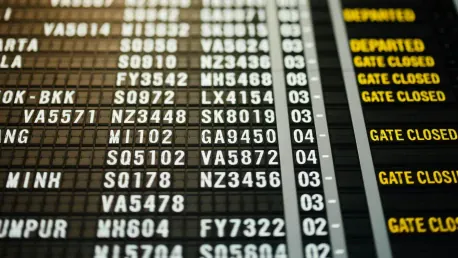International travelers in 2025 will consistently face a range of new laws and regulations that will significantly impact their finances, adding layers of complexity to their trips. National and regional legislation targeting currency control, tourist taxes, and digital payment systems will impose stricter rules and fees, making it essential for travelers to be better prepared. As the UK and Europe introduce new systems requiring electronic travel authorizations and add verification steps when accessing local banking and ATMs, managing finances during international travel will become more challenging.
Electronic Travel Authorizations and Verification
Starting January 8, 2025, travelers to the UK will be required to obtain an Electronic Travel Authorization (ETA), costing 10 pounds ($13). This new requirement does not only affect entry into the country but also extends to accessing local banking and ATMs, complicating financial transactions. Furthermore, the move to digital verification processes means that travelers should anticipate additional screening and potential waiting times when accessing financial services. Europe is also stepping up its verification processes by launching the European Travel Information and Authorization System (ETIAS) around May 2025. With a fee of 7 euros ($7.25), the ETIAS adds another layer of verification for travelers within the Schengen Area, making access to financial services more rigorous.
These new regulations mean that travelers need to be well-prepared with their documents and anticipate potential delays. It becomes crucial for travelers to plan their finances ahead, enabling a smoother experience during bank or ATM visits. The increased scrutiny further means that international travelers might consider carrying additional cash and employing alternative financial tools to avoid frequent and cumbersome verification checks.
Increase in Tourist Taxes
Countries such as Greece, Spain, and Italy are aiming to capitalize more on tourism through a series of new and elevated taxes. Greece, for instance, will double its tourist tax to 8 euros ($8.40) during peak season, making accommodations costlier for travelers. Specifically, Santorini will impose a 20 euros tax for cruise passengers, while Venice reinstates its visitor tax that applies on 54 specific days. These expenses add up, increasing the cash travelers must carry to avoid last-minute inconveniences. Spain is also not left behind, with different regions imposing various fees. Galicia introduces a daily tax ranging from 1 to 2.50 euros, while cities like Tenerife, Alicante, and Seville add new charges.
These taxes represent a notable shift toward greater financial obligations for tourists and underscore the necessity for comprehensive pre-trip financial planning. Travelers must factor these additional costs into their budgets to avoid overspending and ensure a more enjoyable trip. The trend toward higher tourist taxes suggests that future travel may require more extensive research and careful consideration of destinations’ specific financial requirements.
Financial Planning and Currency Exchange
In 2025, international travelers will regularly encounter a host of new laws and regulations that will notably impact their budgets, adding layers of complexity to their trips. National and regional legislation focusing on currency control, tourist taxes, and digital payment systems will enforce stricter rules and additional fees, making it crucial for travelers to be adequately prepared. Both the UK and Europe are set to implement new systems necessitating electronic travel authorizations and introduce extra verification steps for accessing local banking services and ATMs, thus complicating financial management during international travel. Learning to navigate these changes, understanding the new processes, and preparing for extra financial burdens will be key for anyone looking to travel abroad. As these measures take effect, staying informed and planning ahead will be more important than ever to avoid unexpected inconveniences and expenses during their journeys.









